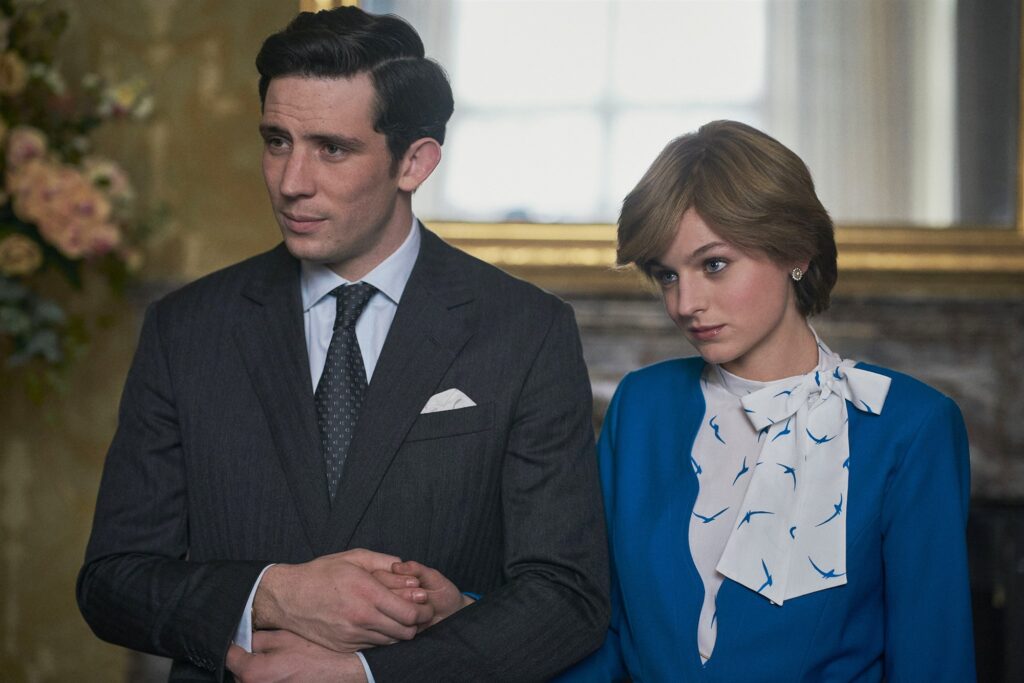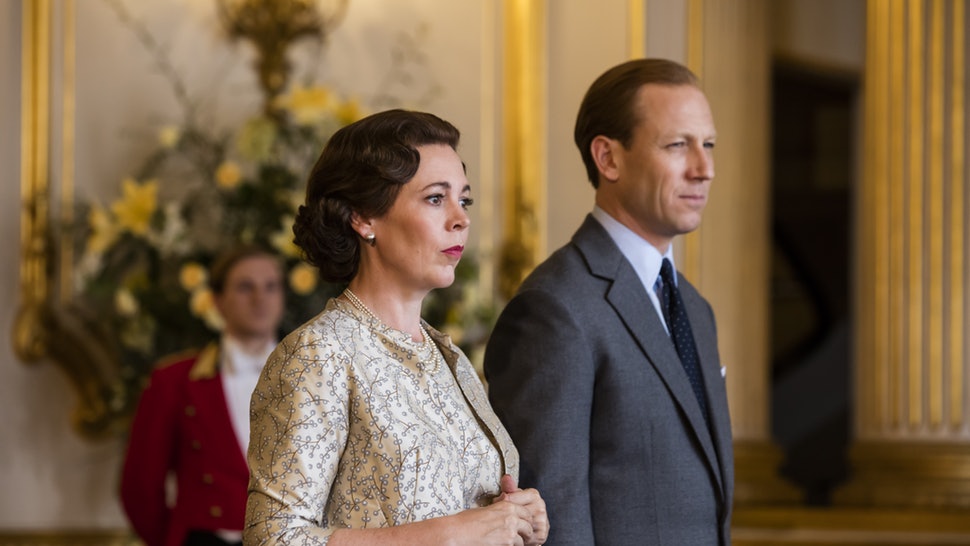The Crown wallows in an annus horribilis of its own making
Written by Ian Thomas Malone, Posted in Blog, Pop Culture, TV Reviews
The general logic behind rotating the cast of The Crown every two seasons was to give the show a chance to cover the spread of major events in the Royal Family across the long and storied reign of Queen Elizabeth II. The transition in practice is a bit clunkier, with the need to reacquaint the audience with the characters gunking up the narrative flow of the show. A further complication stems from the reality that The Crown is slowly creeping up on recent history, particularly one saga that’s been covered ad nauseam for the past few decades.
Season five centers its narrative on decay. The Crown is quite preoccupied with positioning the decommissioning of the royal yacht Britannia as a broader narrative for the downward trajectory of relevance for the Royal Family as a whole, a notion that might confuse viewers fresh off the triumphant Platinum Jubilee, as well as the global outpour of affection following the death of Her Majesty in September. The fairly rosy outlook for the monarchy was hardly a given in the midst of 1992’s infamous “annus horribilis,” which saw the breakdown of 75% of the Queen’s children’s marriages as well as a tragic fire in Windsor Castle.
The overabundance of doom and gloom illustrates season five’s predominant shortcoming, a textbook example of showing without telling. Bad things happen to the monarchy and the Queen (Imelda Staunton) is very sad about it. She loses her boat, her kids get divorced, and Diana is tricked into going on national television to pull back the curtains as to what an uncaring and unsympathetic family the Windsors really are. That’s kind of it. The Queen doesn’t really do anything other than mope and cling to the past, even with regard to her choices in cable television.
Previous seasons of The Crown, particularly the third season, struggled with Her Majesty’s place in a narrative that often found her relatives far more interesting to depict. Philip (Jonathan Pryce) and Margaret (Leslie Manville), once primary focuses of the series, are reduced to idle background characters, the former seeing his primary arc consumed with carriage riding and a friendship with Penelope Knatchbull (Natascha McElhone) that the show rather openly wishes was more than that. The Crown retains its contempt for the Queen Mother (Marcia Warren), one of the most interesting members of the family who’s been reduced to a window draping for the entire course of the series.
The Crown also refuses to let its fascination with the Duke of Windsor slip away, giving the long-dead former monarch an epilogue in the form of his valet Syndey Johnson (Jude Akuwudike), who later served Mohamed Al-Fayed (Salim Daw) in his efforts to ingratiate himself to the Crown. Episode three perhaps best highlights the main issue for the season as a whole, a narrative so strapped for plotlines that it would dedicate a full episode to the father of the man who died in the same car crash that killed Princess Diana. Such screentime might have been better deployed to the Queen’s three other children. After a season of relative prominence, Anne (Claudia Harrison) is reduced to almost complete obscurity, while Andrew and Edward barely exist at all.
Unsurprisingly, season five dedicates much of its runtime to the end of the marriage between Charles (Dominic West) and Diana (Elizabeth Debicki). The biggest problem with this dynamic is the reality that the show brought upon itself. The irrevocable breakdown of the marriage was already defined throughout season four, leaving this season with little but the epilogue. There are interesting moments here and there in the saga, particularly toward Diana’s mindset heading into the Panaroma interview that was solicited under false pretenses, but there’s not enough meat here to carry a season. Debucki does a fabulous job as Diana, but she’s hardly given many moments to define the Princess of Wales as her own like Emma Corrin was able to manage.
West is perhaps in the most strenuous position among the leads, portraying the future King of England in the midst of his most unlikable era. Along with Pryce, West suffers from an inability to truly sink into the role, neither actor able to deliver an accent that sounds much like their subject. Charles is fundamentally correct in most of his concerns about the future of the monarchy, but nothing can change how insufferable and entitled he fundamentally comes across as. Late-season remarks by Tony Blair (Bertie Carvel) lay out the challenges with Charles quite well.
The Crown spends its own annus horribilis oddly bored with itself, a meandering season without the passion it once evoked toward its privileged subjects. There’s nothing new to explore and nothing fresh to say about Diana and Charles. As much as stagnancy may have defined this chapter of the Royal Family, it’s hard to forgive the show’s exceedingly boring delivery. As an institution, The Crown will always have to deal with the “why” of monarchy, an existential moral question with real-world implications. As a show, The Crown might want to take a more deliberate approach to its own execution and present a better thesis for its own existence.













